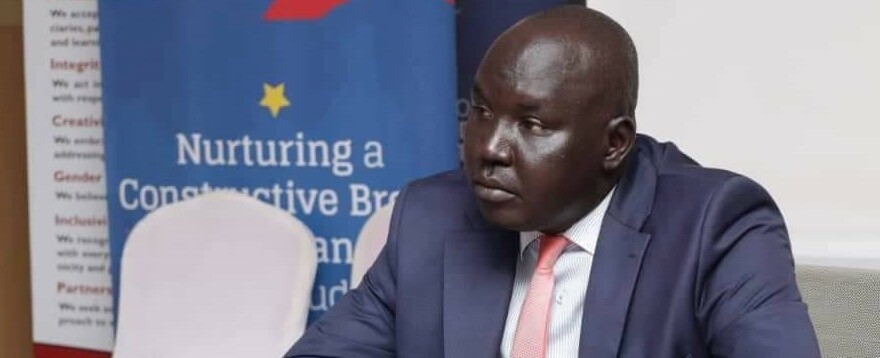Background
The Republic of South Sudan’s current constitutional governance is on the basis of a transitional constitution which came into force on 9th July 2011 as the supreme law of the land, following the successful conduct of a referendum vote on the right to self-determination by the people of South Sudan. The vote was to determine whether to continue with unity of the Sudan or amicably dissolve the union and create an independent state in the South. The latter choice became an obvious result, and today, we have a place we call our homeland.
However, the transitional constitution was only intended to govern the transitional period, pending an inclusive approach to produce a permanent constitution, which shall set a permanent constitutional democracy and governance. While the Government started the constitution-making process in January 2012 with the formation of the National Constitutional Review Commission (NCRC), it was interrupted by the outbreak of political violence in Mid-December 2013 that went on until September 2018 when the Revitalized Agreement on the Resolution of Conflict in the Republic of South Sudan (R-ARCSS) was signed.
Current context
Under chapter six of the R-ARCSS, it has mandated the Revitalized Transitional Government of National Unity to initiate and oversee the permanent constitution-making process during the transitional period. And such processes shall be governed by enabling legislation. Following the parliamentary approval of the Constitution Making Process Bill 2022 and the subsequent Assent of the same into law by H.E Salva Kiir Mayardit, President of the Republic of South Sudan, many legitimate voices of reason have been asking questions, some of which are frequently addressed to me for reasons of proximity to the matter.
As a result of such a clarion call, let me shed light in the following order. First, I understand the Minister of Justice and Constitutional Affairs, the Honourable Justice Ruben Madol Arol, who’s mandated by the Council of Ministers to supervise the constitution making process has written to all parties and other South Sudanese stakeholders several moons ago after the Assent of the Constitution Making Process Act 2022 into law by H.E the President so that they send their nominees to the taskforce of his Ministry for reconstitution of the National Constitutional Review Commission (R-NCRC ) in accordance with eligibility criteria set forth in the R-ARCSS 2018 and the Constitution Making Process Act 2022 respectively.
Second, as a matter of procedure, section 9 (3) of the Constitution Making Process Act 2022 provides that ” the parties and other stakeholders to the Agreement shall nominate and submit a list of their nominees to the taskforce within thirty (30) days after coming into force of the this Act.
As a result, other stakeholders, such as academia and some sections of civil society organizations, have already submitted their nominees. I did not hear any party to have done the same. It might have been done anyway.
Third, the objective of thirty (30) days submission of nominees is to meet the conditional timeline under section 9 (1) of the Constitution Making Process Act that ” the RTGoNU shall reconstitute the Constitutional Review Commission within forty-five (45) days after the coming into force of the Act.
However, the fact that the R-NCRC hasn’t been formed until now despite an earlier lapse of forty-five (45) days is an indication that other parties or stakeholders haven’t submitted their nomination, and therefore, Justice Ruben cannot do anything beyond that, other than sending another reminder to do the needful.
In light of these findings and for the benefit of this weekly review on South Sudan’s permanent constitution, notwithstanding the announcement for the conduct of elections by H.E the President without further extension, it’s my considered view to remind the parties and other stakeholders of their commitment to implementing the R-ARCSS and to end transition.
Last but not least, even if the RTGoNU has some reasonable challenges that are delaying the reconstitution of independent institutions and commissions, I strongly advise that three institutions or commissions are time-bound and tied with twenty-four (24) months of the R-ARCSS Roadmap: these are the Reconstituted National Constitutional Review Commission, the Political Parties Council and the National Election Commission respectively. These institutions need to be reconstituted now rather than later.
Beny Gideon Mabor is Commissioner, South Sudan Human Rights Commission.
The views expressed in ‘opinion’ articles published by Radio Tamazuj are solely those of the writer. The veracity of any claims made is the responsibility of the author, not Radio Tamazuj.



